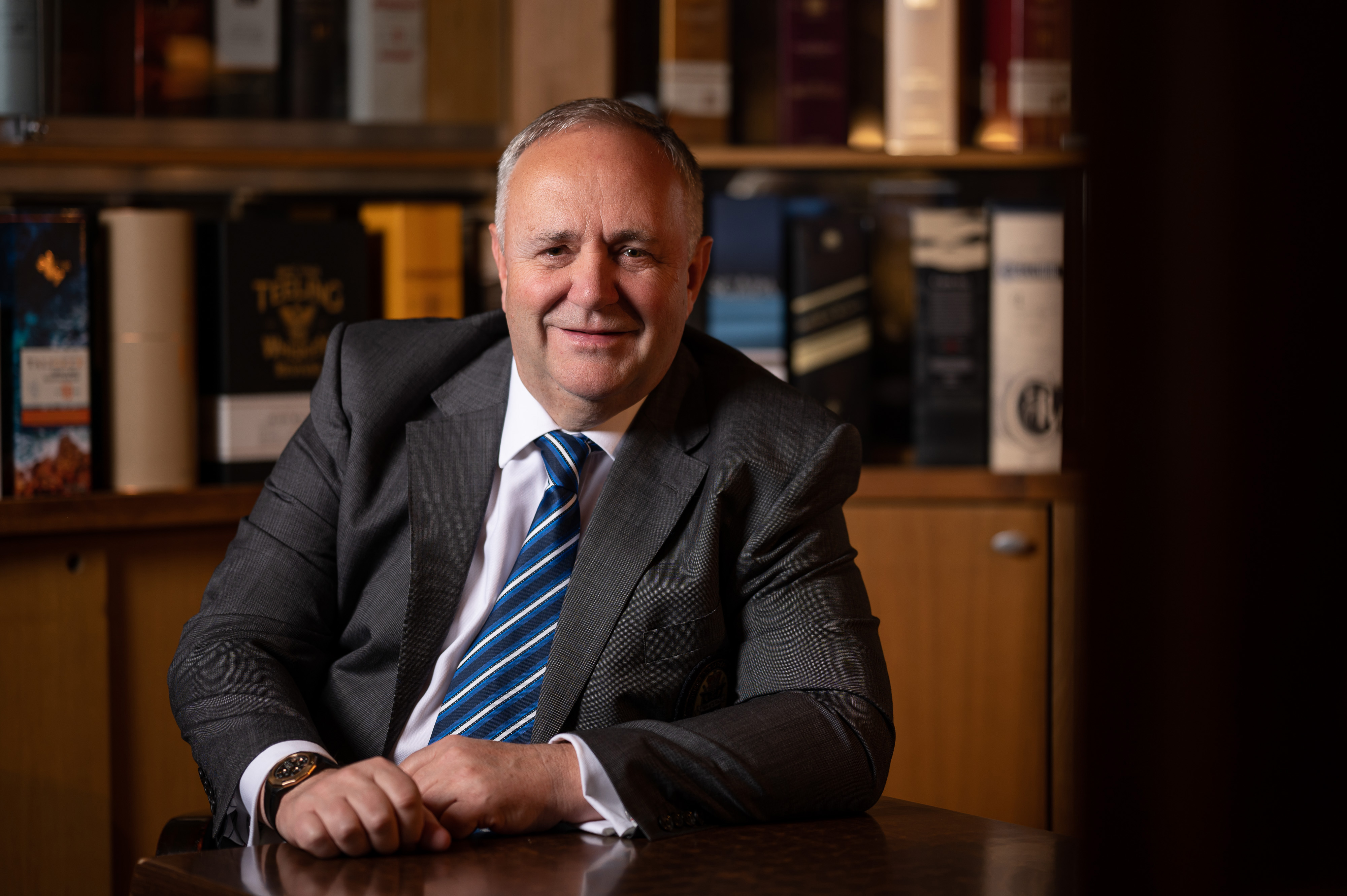Network Investment, Sustainable Operation in Focus at Vodafone

Anita Orbán
As previously reported in the Budapest Business Journal, there has been a significant change in the leadership at Vodafone Hungary: from January 4, Anita Orbán has held been External Affairs Director. We talked with her about the change, Vodafone’s goals for 2021 and the current situation of the Hungarian telecommunications sector.
BBJ: You didn’t work in the telecommunications sector previously. What is your background?
Anita Orbán: Actually, at the very beginning I did: I graduated from the Budapest University of Economics and started my career at Magyar Telekom, then called Matáv, as a financial controller. But then I moved to the United States, where I first studied history and then continued at the Fletcher School of Law and Diplomacy, where I earned a master’s degree in diplomacy and also earned my PhD. Energy has been a focus of my interest from the very start and in 2008 my book on the geopolitics of energy in Central Europe was published in the United States.
I then worked at the Ministry of Foreign Affairs in Hungary for five years, as ambassador-at-large for energy security and chairman of the energy cooperation committee of the Danube countries.
Switching from the state sector to the private, I continued my career as chief consultant at Cheniere Marketing Ltd. in London. I came to Vodafone Hungary from a London-based energy company, Tellurian LNG; as vice-president for international relations, I was responsible for commercial and corporate relations in several countries.
BBJ How do you find the atmosphere and organizational culture at Vodafone Hungary? Is there much contrast to what you’ve experienced overseas?
AO: Although Vodafone Hungary has a British parent company, I have also experienced certain novelties and cultural differences. One of the reasons behind that is Tellurian, where I was before, has American roots, so the London subsidiary also had something of an American corporate culture.
I was able to experience the dynamic and supportive environment of Vodafone Hungary as soon as I arrived. This is extremely positive, especially since the open and flexible attitude that characterizes employees is not at the expense of quality; in fact, quite the contrary. This is due to a significant proportion of young colleagues, which shows that Vodafone believes in young talent and in their positive attitude-forming effect. I particularly like the sharing of knowledge and experience between younger and more experienced colleagues. I believe that you can learn from colleagues in their 20s in the same way as you can learn from seniors, and I believe that companies who believe in age diversification will be successful.
I also really like the agile operation of Vodafone. I believe that this approach is essential in the telecommunication industry, because the only way to be market leaders is to be open to change. As part of this, we must constantly develop our products and services, but also the organization as a whole, alongside our colleagues separately. Vodafone offers many opportunities to do so, giving room to experiment with new things. It is natural to make mistakes along such a road, but at Vodafone this is seen more as a learning process than as a failure. This is a very positive approach for both colleagues and future successes.
It is also evident from the outset that Vodafone Hungary places a great deal of emphasis on creating a work/life balance for all of its colleagues. As a mother of three, I know exactly how much depends on a job being supportive of this and not expecting a compromise or a choice between career, professional development and personal life.
BBJ: In professional terms, how do you see the current situation of Vodafone Hungary?
AO: In recent years, domestic telecommunications and info-communication have undergone a rapid development. Vodafone has played a very important role in this process; just think about the introduction of the most important technology of today, 5G, where Vodafone is at the forefront not only in our country, but also internationally.
In addition, Vodafone Hungary became a convergent service provider through the UPC acquisition. Although the legal merger of the two companies has already taken place, integration is still ongoing. We are doing everything we can to ensure that customers feel as little about integration processes as possible, can remain in constant contact with their loved ones, work and learn with our networks. Vodafone Hungary has made several billion forints of investments in order to eliminate the formerly experienced periodical outages in fixed line services in the future.
BBJ: Speaking of which, what are Vodafone’s 2021 goals?
AO: Vodafone is expected to have a major corporate renewal at global level this year. This will allow for a simpler, more transparent and more efficient operation. We want to become a new generation telecommunications company; to be precise, a technology communication company with a wide range of products, providing better and more innovative services and providing digital solutions that go beyond mere communication. The development of common platforms and their use on as many markets as possible is essential in order for us to provide the best customer experience everywhere.
For Vodafone Hungary, one of the most important strategic projects in 2021 will be the further development of the 5G network. We want to achieve an even wider spread by developing networks in additional county capitals and establishing private networks for corporate customers. We will pay particular attention to the relaunch of the economy, and support for digital education also remains central to our operation. Some of our services already launched include a heat camera solution to support workplace safety, or the Digital Classroom product package that allows both virtual and classroom education, and associated license-based services that are becoming ever more popular with domestic educational institutions.
But Vodafone is more than a simple telco service provider. We pay extremely close attention, for example, to the digitization of healthcare and education, and through the activities of Vodafone Foundation, we extend the opportunities offered by digitization to tens of thousands of students and teachers living in disadvantaged areas.
It is part of our corporate responsibility to act in a sustainable manner in all activities, including network development and investment. In recent years, Vodafone has taken significant steps in this area, at group level and at home. Vodafone has set several sustainability goals that were first achieved in Europe by Vodafone Hungary. An example is the commitment related to energy use, according to which the company will operate its networks with 100% renewable energy use only from July 2021; this was fulfilled by Vodafone Hungary in November 2020. As an energy expert, I can say that this is an amazing achievement. In the future, our aim is to extend this approach to our customers and corporate partners, helping them to create sustainable digital operations.
BBJ: At the end of January, the National Media and Telecommunication Authority (NMHH) conducted a new frequency tender. How do you evaluate the results?
AO: At the frequency auction on January 28, the three largest domestic operators, including Vodafone, could bid on the 900 MHz and 1800 MHz bands. At the auction carried out by the NMHH, we renewed our existing frequencies in these bands, totaling HUF 49.1 billion. With the frequencies re-acquired we can ensure the continuity of our services used by our customers and with capacity extensions we can provide even faster internet and better voice quality.
This article was first published in the Budapest Business Journal print issue of February 12, 2021.
SUPPORT THE BUDAPEST BUSINESS JOURNAL
Producing journalism that is worthy of the name is a costly business. For 27 years, the publishers, editors and reporters of the Budapest Business Journal have striven to bring you business news that works, information that you can trust, that is factual, accurate and presented without fear or favor.
Newspaper organizations across the globe have struggled to find a business model that allows them to continue to excel, without compromising their ability to perform. Most recently, some have experimented with the idea of involving their most important stakeholders, their readers.
We would like to offer that same opportunity to our readers. We would like to invite you to help us deliver the quality business journalism you require. Hit our Support the BBJ button and you can choose the how much and how often you send us your contributions.









